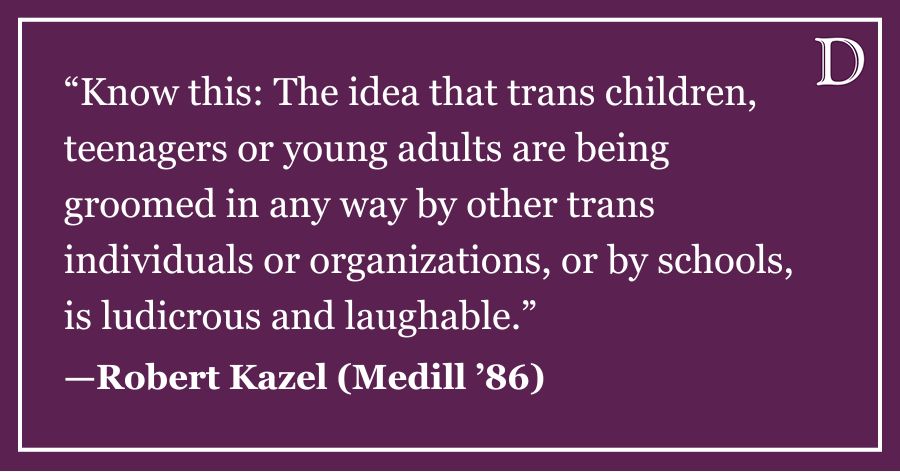
The Manchester United supporters stood in stunned silence as their captain sprawled out on the Old Trafford pitch, completely motionless. Just seconds before the end of the first half in Sunday’s match between current English Premier League leaders Arsenal and defending champions Manchester United, Nemanja Vidic — the brawny captain for the world’s most popular sports club — was knocked unconscious after colliding with his own goalkeeper. After being treated by trainers for a few minutes, Vidic, ghostly pale and spitting up blood, finally rose from the grass and was taken to the hospital.
Perhaps an even more alarming incident happened just minutes before in the very same game, when Arsenal’s talented young goalkeeper Wojciech Szczesny appeared to be unconscious after an aerial collision — yet he remained in the game by his own volition.
These horrible head injuries are not merely isolated incidents within the English Premier League this season. Stoke City defender Robert Huth suddenly collapsed after being struck in the head, causing teammates to turn him on his side to keep him from choking on his own tongue, yet he remained in the game. Everton striker Romelu Lukaku, perhaps the world’s most prized under-21 player, scored a goal on a header while simultaneously colliding with a defender. Lukaku remained in the game and afterward said he does not even remember scoring the goal.
Finally, in the injury that has received the most media scrutiny this season, Tottenham Hotspur star goalkeeper Hugo Lloris was knocked unconscious after being kneed in the head by, interestingly, Lukaku. Tottenham manager Andre Villas-Boas decided to keep him in the match because Lloris — against advisement from the medical staff and his teammates — said he was OK to play. Lloris has sat out both of his club’s matches since the injury, with no timetable for his return.
Here is where we get to the problem that the English Football Association, the governing body of the Premier League, must address as soon as possible. As you may have guessed, neither Villas-Boas nor Lloris is a doctor. Thus, should they have the authority to make the decision on something that could significantly affect a player’s permanent health?
“He doesn’t remember (the collision) so he lost consciousness,” Villas-Boas was quoted as saying in Alexander Abnos’ Sports Illustrated post on concussions in the EPL. “The call always belongs to me. Hugo seemed assertive and determined to continue and showed great character and personality. We decided to keep him on based on that.”
Even within the NFL, which has been heavily criticized for its lack of concussion safety, Villas-Boas’ statement sounds like a joke. In both the NFL and NCAA, professional trainers are required to make the decisive call on a player’s availability, often erring on the side of safety. If a player is knocked unconscious or shows any concussion-related symptoms, he is not allowed to play for the remainder of the game. Furthermore, all NFL players complete extensive cognitive and motor baseline tests prior to the season. When a player suffers a head injury, he may not return until he has passed all of the tests again.
Meanwhile, the 2013-2014 Premier League Handbook only mentions head injuries once, when it says that any player with a head injury “shall not be allowed to resume playing … until he has been examined by a medical practitioner and declared fit to do so.”
Even given this extremely lenient “rule” on protocol, teams hardly ever follow it, as evidenced by the many players who have continued to play despite being cleared by no one but themselves. A study published in the British Journal of Sports Medicine, referenced in Abnos’ column, conducted a study of all 92 teams governed by the FA following Chelsea and England national team captain John Terry’s horrific head injury in the 2007 League Cup final.
“Around half of Premier League clubs or less follow the internationally agreed-upon protocol for dealing with head injuries,” Abnos said in his summary of the study. “The same ratio of Premiership clubs fail to administer pre-season neuropsychological tests that can help determine the likelihood of sustaining a concussion and identify symptoms well ahead of time.”
The FA must make dramatic changes in order to promote player safety and refrain from falling into the gauntlet that the NFL has due to concussion problems. It must enforce its already established rules much more strictly, require every team to conduct preseason concussion testing and require professional medical staff to clear each player before he can return to the pitch.
“Any other injury doesn’t take your life away. This takes your life away,” former American soccer star Taylor Twellman said in an interview with the Los Angeles Times. Twellman now works in the ESPN broadcast booth after his soccer career ended early due to a severe head injury. “You get a knee (injury) … you still can go to the movies. You still can play video games. You still can remember things. This brain injury of concussions takes your life away. We’ve got to stop it.”
Bob Hayes is a Weinberg freshman. He can be reached at [email protected]. If you would like to respond publicly to this column, send a Letter to the Editor to [email protected].













